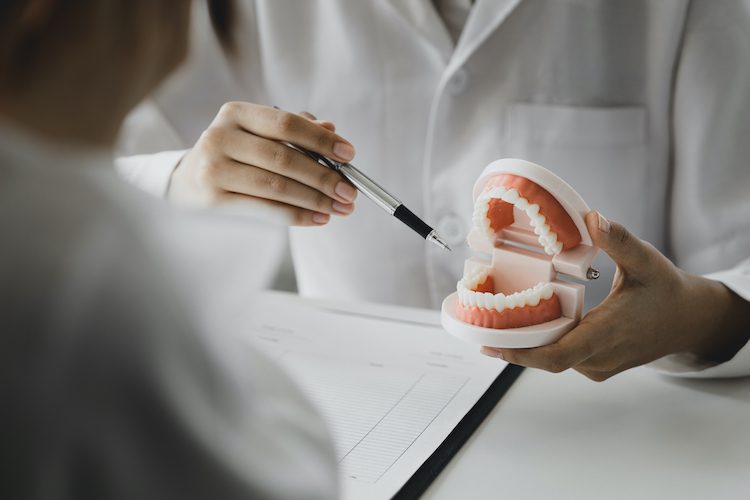Gum recession is a prevalent dental issue that affects many individuals. It can lead to increased tooth sensitivity, root exposure, and an increased risk of decay. Understanding the causes of gum recession is crucial for prevention and effective treatment.
Poor Oral Hygiene
Poor oral hygiene is a significant contributor to gum recession. When individuals neglect regular brushing and flossing, plaque accumulates on the teeth. Plaque is a sticky film of bacteria that adheres to the tooth surface. If not removed, it hardens into tartar, which irritates the gums. This irritation causes inflammation, leading to the gradual recession of the gum line.
Consistent oral hygiene practices are vital in preventing plaque build-up. Brush your teeth twice daily for at least two minutes each time. Flossing should be done once a day to remove plaque from areas your toothbrush cannot reach. Regular dental cleanings are also essential. They help remove tartar that cannot be eliminated by brushing alone.
Aggressive Brushing
While maintaining oral hygiene is crucial, brushing too aggressively can be harmful. Aggressive brushing can wear down tooth enamel and irritate the delicate gum tissue. This irritation can lead to gum recession over time. To prevent this, use a soft-bristled toothbrush. A soft brush is gentle on both teeth and gums.
Proper brushing technique is also important. Hold your toothbrush at a 45-degree angle to the gums. Use short, gentle strokes to clean the teeth effectively. Replace your toothbrush every three to four months, or sooner if the bristles become frayed. By adopting these practices, you can maintain oral hygiene without causing damage to your gums.
Genetic Factors
Genetics can play a significant role in gum health. Some individuals are genetically predisposed to thinner gum tissue. This makes them more susceptible to gum recession. If your parents or siblings have experienced gum recession, you may be at a higher risk. Regular dental check-ups are essential for those with a family history of gum problems. Dentists can monitor gum health and provide personalized advice. Early detection of gum recession could prevent more severe complications. Understanding your genetic predisposition can empower you to take proactive measures to protect your gums.
Periodontal Disease
Periodontal disease, commonly known as gum disease, is a leading cause of gum recession. It begins with gingivitis, characterized by red, swollen, and bleeding gums. If left untreated, gingivitis can progress to periodontitis. Periodontitis is a more severe form of gum disease. It involves the destruction of the supporting structures of the teeth. Bacteria in plaque release toxins that irritate the gums. This results in inflammation and the breakdown of gum tissue and bone. As the disease progresses, gums recede, exposing the roots of the teeth. This can lead to tooth sensitivity and increased risk of decay. Regular dental visits are crucial for early detection and treatment of periodontal disease. Professional cleanings can remove plaque and tartar, reducing the risk of gum disease progression.
Hormonal Changes
Hormonal changes can significantly impact gum health. Women experience hormonal fluctuations during puberty, pregnancy, and menopause. During these times, increased hormone levels can make gums more sensitive. This sensitivity can lead to inflammation and an increased risk of gum recession. Pregnant women may experience “pregnancy gingivitis,” characterized by swollen, bleeding gums. Menopausal women may experience dry mouth, which can affect gum health. Regular dental check-ups during these times are essential. Dentists can provide tailored advice and treatments to manage hormonal changes. Maintaining good oral hygiene and seeking professional care can help mitigate the effects of hormonal changes on gum health.
Misaligned Teeth and Bite
Misaligned teeth can contribute to gum recession. When teeth are not properly aligned, they can exert uneven pressure on the gums. This pressure can cause the gums to recede over time. Orthodontic treatment could correct misalignment. Braces or clear aligners can help distribute pressure evenly across the teeth. This reduces the risk of gum recession. Correcting misalignment could improve both the function and appearance of your smile.
Grinding and Clenching
Bruxism, or teeth grinding and clenching, can damage gums and teeth. It puts excessive pressure on the teeth and supporting structures. This pressure can lead to gum recession and tooth wear. Many people grind their teeth at night without realizing it. A dentist can provide a custom-fit mouthguard. Wearing a mouthguard at night can protect teeth and gums from grinding damage. If you suspect bruxism, seek dental advice. Addressing this issue can prevent further damage to your oral health.
Gum Recession Treatment in Knoxville, TN
At East Tennessee Periodontics, we offer comprehensive gum care and expert advice. If you suffer from gum recession, we are here to help. Contact our office today to schedule a consultation and learn more about your treatment options.

